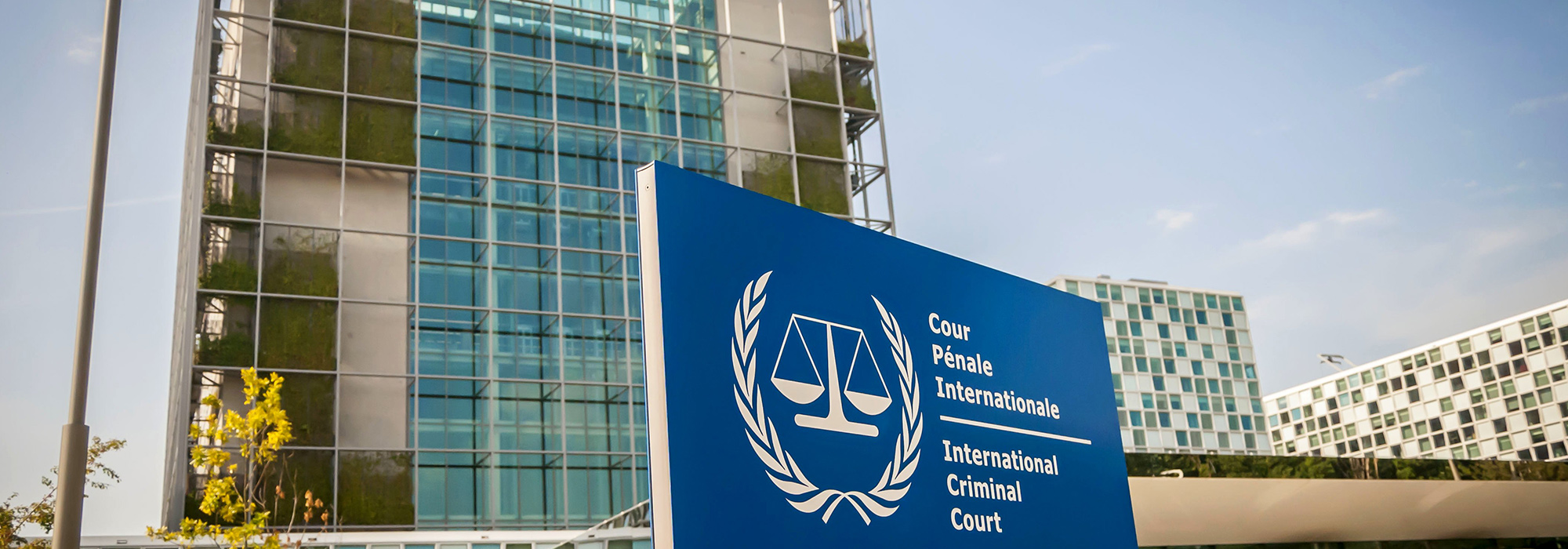
Canada’s recent failure to secure one of the rotating seats on the United Nations Security Council came as a shock to many. Accustomed to being in the most exclusive international political club roughly once a decade since the late 1940s, Canada stood helpless as it saw its base of support in the General Assembly dwindle from 114 votes in the first round to 78 votes in the second. To avoid further humiliation, Canada’s ambassador to the UN, John McNee, withdrew the country’s nomination, paving the way for Portugal’s victory.
Back home, Canadians were treated to yet another round of political jockeying, this time over who was responsible for the diplomatic setback. The Liberals pinned Canada’s loss on Stephen Harper’s brand of foreign policy. The Conservatives countered, stating that Opposition Leader Michael Ignatieff’s unconstructive remark that Canada had not “earned” its place at the Security Council table is what jeopardized the bid. Partisan politics aside, some found it expedient to target the UN in their criticism, branding it an organization dominated by nondemocratic states that dislike Canada for standing firm on principles such as human rights, freedom, rule of law, justice and human security.
The fact of the matter is, and most pundits concur with this (as do a large plurality of Canadians, according to a recent poll), the international community voted against Canada because its international credibility and reputation — both of which hinge on its capacity to make a positive difference in world affairs — have deteriorated over the past several years. Thus, rather than signalling a rejection of Canadian values, the negative vote served to put Canada on notice that it was not living up to the world’s expectations. As Doug Saunders of the Globe and Mail observed, “Canada said things, but just wasn’t there.” Likewise, Kenneth Roth of Human Rights Watch remarked that the international community turned against Canada because it “no longer acts as a leader — or at least the kind of leader that once was so widely admired.”
One international governance institution in which Canadian engagement has nosedived is the International Criminal Court (ICC). The ICC became operational on July 1, 2002, after 60 countries ratified the Rome Statute, the court’s founding treaty, which was approved on July 17, 1998. It has the potential to become one of the most consequential global governance institutions in the 21st century, if it manages to obtain states’ adherence to combating impunity for perpetrators of war crimes, crimes against humanity and genocide. Its ability to initiate criminal proceedings if states fail to conduct genuine investigations and prosecutions compromises a central feature of state sovereignty: namely, the prerogative of national governments to decide against whom, when and how to administer justice.
Unfortunately, Canada’s track record with regard to the ICC is a pattern of ill-conceived and erratic policy measures, extending all the way back to the early 2000s. This is one global governance area in which Canada is no longer living up to its full potential. In fact, one would have to revisit the 1990s to observe Canadian internationalism at its best. Fifteen years ago, Canada led the international effort to create the ICC.
“Getting back in the game,” to borrow the title of Paul Heinbecker’s recent book, will require political will from Ottawa, but also harnessing a different mix of “smart power” assets to deal with a set of challenges that is quite distinct from those Canada encountered when it rallied global support for a new permanent court. Some may wonder how the additional expenditure of political and material resources to promote international criminalization can advance Canada’s interest in creating a peaceful and safer global order for states and also individuals. The answer is that effective domestic and international accountability mechanisms ensure that state or nonstate actors who commit mass atrocity crimes do not get a chance to repeat their offences, and these mechanisms also deter potential criminal wrongdoers by evoking the spectre of punishment.
Partisan politics aside, some found it expedient to target the UN in their criticism, branding it an organization dominated by nondemocratic states that dislike Canada for standing firm on principles such as human rights, freedom, rule of law, justice and human security.
Canada was instrumental in the development of the anti-impunity norm in the second half of the 1990s. To be sure, this case comes close to validating the claim that soft power assets such as issue-framing, networking and persuasion can produce meaningful changes in the behaviour of states. The soft power leadership that Canada so effectively exercised in the years leading up to the Rome conference in 1998 was made possible thanks to several factors. First, a normative frame advocating an ex ante tribunal with a high level of delegated authority and state obligation was achieved by leveraging the soft power assets of the coalition that joined the Like-Minded group (LM) (which Canada chaired) and the Coalition for the International Criminal Court (CICC) — a conglomeration of NGOs from around the world. Second, in order to garner support for the antiimpunity norm, the LM-CICC network applied moral suasion in the context of strategically orchestrated regional conferences in Africa, Latin America, and central and eastern Europe.
On December 18, 1998, the Canadian Parliament signed the Rome Statute; only 13 countries had done so by that time. On July 7, 2000, the Liberal government ratified the Statute and it earlier passed the Crimes Against Humanity and War Crimes Act, which made Canada the first state party to be in full compliance with the Statute’s provisions — in particular, its complementarity and cooperation obligations. To date, 114 countries have ratified the Rome Statute, and more are poised to join in the near future. That the ICC opened its doors less than four years after the idea for it was sketched on paper, surprising even its most ardent supporters, was a testament to Canada’s unrelenting collective global leadership — a feat it was able to pull off by virtue of its networking and norm-shaping capabilities.
Today, such a display of middlepowermanship lies in the distant past. Since 2002, Ottawa has scaled back its level of engagement in the emerging international criminal justice regime. Though it is still committed to ICC’s anti-impunity mission, the level of enthusiasm with which Canada promotes it has diminished, as has the visibility of its policy initiatives in Canada and abroad. When the issue of human security figures in the minds of policymakers, the focus is usually on how to advance the Responsibility to Protect (R2P) agenda, and on touting the success of the Anti-Personnel Landmine Treaty. In the introspection that followed the UN Security Council setback, Canada’s diminished role in the ICC was rarely acknowledged by the Canadian “commentariat,” former diplomats and elected officials. Most signals coming from Ottawa suggest that Canada prefers shifting problem-solving leadership responsibility to others and settling for a followership role, assisting the ICC with as little effort as possible and cashing in on the reputation it built up in earlier years.
One problem area in which Canadian contributions have been largely ineffective is with regard to the dilemma of noncompliance with ICC complementarity. As the cornerstone of the court, the complementarity principle preserves the primacy of national jurisdiction, holding this forum of justice primarily responsible for combating impunity for perpetrators of mass atrocity crimes. Weaker members of the ICC, in particular, have struggled to align their national criminal justice regimes with their complementarity obligations. Canada has addressed this problem by way of persuasive discourse and informational guidance for the most part. The Canadian government issued a manual on how to ratify and implement the Statute, which was updated in 2008. Unfortunately, since it was first employed in the early 2000s, the soft power approach has not helped increase the level of compliance among countries that have been exposed to it. To date, less than half of states parties are fully complying with ICC complementarity, marking little improvement since the court was activated. The reason for the abysmal result is that most of the international assistance so far, including Canada’s, does not help states absorb compliance costs.
For less developed countries, the compliance costs can be staggering. One dimension of such costs concerns building capacity in the domestic judicial system, which includes undertaking reforms to ensure separation of powers, independence of judges and prosecutors, due process and defence rights; enhancing court management; and enhancing the skills and training of judges, prosecutors and lawyers. There are costs associated with infrastructure improvement, such as establishing witness protection mechanisms, improving prison security and training law enforcement authorities. Providing aid to victims, such as legal assistance, reparations and rehabilitation, is another dimension of compliance costs. Finally, the state must provide adequate budgetary resources for administering justice and law enforcement. Canada’s ICC socialization strategy seems ill-conceived because, while it might persuade weaker states to want to internalize the anti-impunity norm, it offers them little material means to convert such an aspiration into reality.
The issuance of ICC arrest warrants has obtained strong rhetorical support but minimal material assistance from Canada. For example, Ottawa has been a leading proponent of Uganda’s Juba peace process, including the enforcement of ICC arrest warrants against four top commanders of the Lord’s Resistance Army (LRA) issued in 2005. However, a small fraction of the $8 million Canada contributed to the peace process between 2006 and 2008 went toward efforts to capture the indicted officials.
In recent years, Ottawa has desisted from spotlighting and showcasing how it supports international criminal justice. At the 2010 Kampala Review Conference, participating countries were invited to submit “pledges” about how they intend to promote the ICC mandate in the future. The Harper government, as of this writing, has yet to submit its pledge. In December 2009, the UN General Assembly adopted Resolution 64/117, which requested the Secretary General to invite states to submit information about the scope and application of universal jurisdiction in their national judicial systems. Canada did not submit such information before the April 2010 deadline.
Moreover, in a report submitted for the Kampala conference on projects designed to help states parties strengthen domestic jurisdiction over Rome Statute crimes, Canadian contributions to this endeavour were not mentioned. This suggests that such contributions were not as successful as those listed in the report and/or that Ottawa did not bother to inform the report’s authors about its ongoing ICC implementation projects.
How might Canada go about renewing its commitment to international criminal justice? The ideal strategy would provide ways for Canada to contribute constructively to facilitate compliance with complementarity and enforcement of ICC arrest warrants. It would also direct Canada to address issues of growing importance, such as the future role of the United States in the ICC as well as the promotion of victims’ rights. Finally, a sound strategy would promote the ICC’s mission and showcase Canada’s role in it.
In his remarks at a high-level meeting on complementarity in October 2010, Judge Sang-Hyun Song, president of the ICC, noted, “It is obvious that some kind of a coordination system or a ‘clearing house’ is needed to match the supply and demand of technical assistance for the national implementation of the Rome Statute and the strengthening of national capacity.” The networking capacity Canada honed on the road to Rome and its experience in the administration of justice can be brought to bear on this particular challenge. Under Canadian leadership, a multilateral mechanism that pools the pertinent resources from willing states and NGOs and that is responsive to regional needs could be created with the aim of providing states the necessary assistance to absorb the costs of complying with complementarity responsibilities. The goal of such an endeavour would be to end the culture of impunity by developing national judicial systems capable of carrying out retributive and restorative justice.
Moreover, the Stabilization and Reconstruction Task Force (START) in Foreign Affairs and International Trade Canada should develop a new project within the Glyn Berry Program for Peace and Security, designed to foster national mechanisms of accountability and restorative justice in postconflict states. The new project should operate in concert with other stakeholders within a multilateral framework. Further, the new project’s justice development assistance resources should be geared to respond to various needs, such as building judicial capacity, developing justice-related infrastructure, victims’ assistance and financial aid. A Canadian-sponsored multilateral initiative to enhance complementarity, coupled with the broadening of justice building assistance assets in START, would enable Canada to make a positive difference in the promotion of international criminal justice.
Ottawa has failed to communicate effectively how Canada has promoted international criminal justice in recent years, and the government will have to enhance the visibility of its efforts if it wants others to perceive the country as a leader in this global governance area.
It is often said that when Ottawa has the respect of Washington, Canada’s influence in world affairs is enhanced; when Canada performs well abroad, it is respected in Washington. The Obama administration’s interest in establishing a cooperative relationship with the ICC — American accession is unlikely in the near future — offers Canada a unique opportunity. Canada should consult Washington to ascertain its interests and concerns regarding the court and relay to Washington, when appropriate, information that it is not privy to as a nonmember.
Further, as Canada’s military involvement in Afghanistan draws to an end, some of the logistical skills and advanced technology of the battle-hardened Canadian Armed Forces should be put at the service of restoring stability in the Democratic Republic of Congo (DRC) and capturing LRA fugitives. Such a move is likely to grab the attention of the US, which in recent years has supplied the Ugandan and DRC governments with millions of dollars of military and nonmilitary assistance, the most any foreign government has contributed to the ongoing peace-building efforts in the war-ravaged region. A more robust Canadian role and the current American assistance, when combined with other existing international efforts, would likely improve the prospects of ending the endemic atrocities in the Great Lakes region of Africa and bring perpetrators of human rights violations to justice — including the prosecution of the four indicted LRA rebels at the ICC.
Canada’s problem-solving leadership could be extended to include the promotion of victims’ rights and ICC’s outreach efforts. At the Kampala Review Conference, the ICC prosecutor, Luis Moreno-Ocampo, observed, “The Rome Statute established victims as actors of international justice. Victims have rights, and their rights will be respected.” While the ICC has made important progress in this area, there is much more that needs to be done to guarantee the rights and dignity of victims. Currently, the Trust Fund for Victims, a voluntary contribution-based program set up by the ICC, is underfunded. Canada should make a sizable contribution in an area of victims’ rights that has received insufficient attention.
In addition, Canada should make a voluntary financial donation to ICC’s Strategic Plan for Outreach (SPO), which so far no state has done. Established in 2006, the SPO aims to ensure that the ICC’s role is understood in communities affected by Rome Statute crimes by creating lines of communication between the communities and the court. At a time when the court is increasingly perceived as being biased against Africa — all situations on its docket involve African countries — such outreach efforts, with which Canada would be associated, could help set the record straight and put the focus on victims and the atrocities perpetrated against them.
In Memoirs, former prime minister Brian Mulroney remarks that Canada’s good international standing is the result of “how hard we work to make sure we are noticed. Membership has to be personified… [The international community has to see that] the country and its leadership can make a contribution.”
Indeed, the international reputation of a state is partly the product of the visibility by which it contributes positively to a global endeavour. Ottawa has failed to communicate effectively how Canada has promoted international criminal justice in recent years, and the government will have to enhance the visibility of its efforts if it wants others to perceive the country as a leader in this global governance area.
It could start by updating and consolidating the information on Canada in the ICC posted on the Foreign Affairs and International Trade Canada Web site, which, as of this writing, was last revised more than one year ago. Further, it could raise awareness about the newly launched Justice Rapid Response (JRR) mechanism — a multilateral fact-finding facility with rapid deployment capability in situations where mass atrocities allegedly have occurred. Canada was instrumental in establishing it, but so far the JRR lacks international visibility. Of course, drawing attention to the government’s current ICC-related programs is likely to invite evaluative criticism. But this can set in motion efforts to improve the quality of Canada’s role in this international endeavour.
Many were quick to assign responsibility for Canada’s recent setback at the UN to the Harper government. However, as the ICC case illustrates, Canada’s ability to “punch above its weight” was eroding long before the Tories took power. The international community desperately needs the “good international citizenship” of a few countries to galvanize the kind of global collective efforts that will enable the Rome Statute system to achieve its mandate in the decades to come and rid global affairs of its pernicious culture of impunity. The strategy sketched above proposes several feasible policy measures by which Canada can renew its engagement and restore its reputation as a linchpin in the emerging international criminal justice regime. However, what will determine whether Ottawa rises to the occasion is its willingness to muster the political will to invest in the necessary smart power assets to back its good intentions.
Photo: Roman Yanushevsky / Shutterstock







